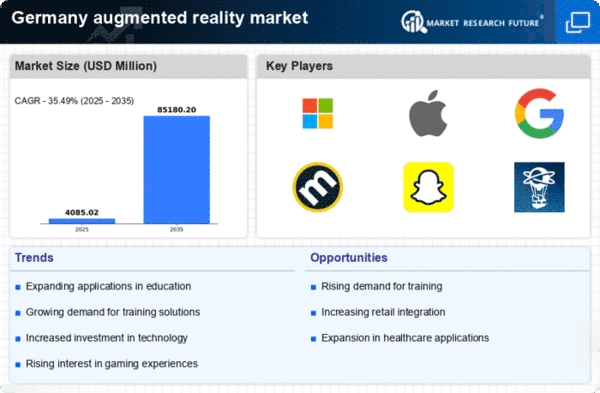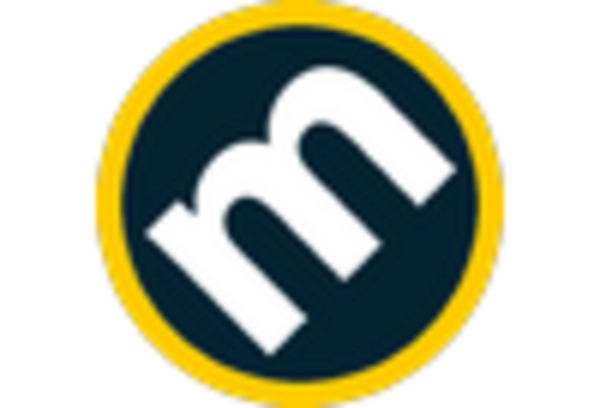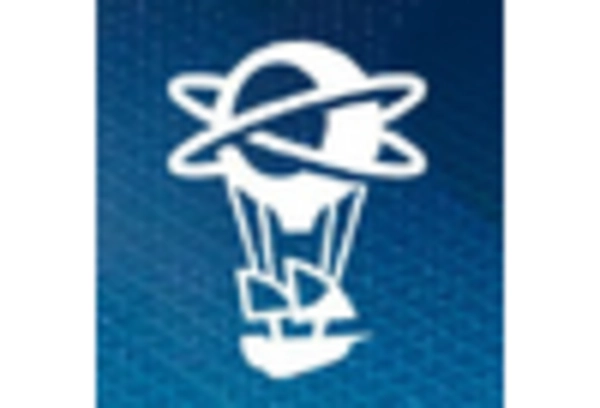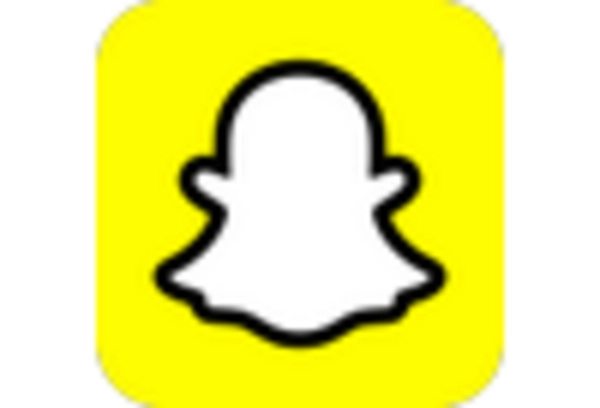Increased Investment in AR Startups
The augmented reality market in Germany is witnessing a notable increase in investment directed towards AR startups. Venture capital firms and corporate investors are recognizing the potential of AR technologies to transform various industries, leading to a surge in funding. In 2025, investments in AR startups are projected to exceed €500 million, reflecting a growing confidence in the augmented reality market. This influx of capital is fostering innovation and enabling startups to develop cutting-edge applications that cater to diverse sectors, including entertainment, education, and healthcare. The competitive landscape is likely to evolve as these startups introduce novel solutions, further propelling the growth of the augmented reality market.
Government Support for AR Development
The augmented reality market in Germany is benefiting from substantial government support aimed at fostering AR development. Initiatives and funding programs are being implemented to encourage research and innovation in AR technologies. The German government recognizes the strategic importance of AR in enhancing competitiveness and driving economic growth. In 2025, public funding for AR projects is projected to reach €200 million, reflecting a commitment to advancing the augmented reality market. This support is likely to stimulate collaboration between academia and industry, leading to the development of groundbreaking AR applications that can be utilized across various sectors, including education, healthcare, and manufacturing.
Technological Advancements in AR Devices
The augmented reality market in Germany is experiencing a surge due to rapid technological advancements in AR devices. Innovations in hardware, such as lightweight smart glasses and enhanced mobile devices, are making AR more accessible to consumers and businesses alike. The integration of high-resolution displays and improved sensors is enhancing user experiences, thereby driving adoption across various sectors. In 2025, the market is projected to reach a valuation of approximately €3 billion, reflecting a compound annual growth rate (CAGR) of around 25% from previous years. This growth is indicative of the increasing reliance on AR technology in both consumer and enterprise applications, positioning Germany as a key player in the augmented reality market.
Integration of AR in Marketing Strategies
The augmented reality market in Germany is increasingly being shaped by the integration of AR technologies into marketing strategies. Businesses are leveraging AR to create immersive experiences that engage consumers and enhance brand loyalty. This trend is particularly prevalent in the retail sector, where AR applications allow customers to visualize products in their own environments before making a purchase. By 2025, it is anticipated that AR-driven marketing campaigns will contribute to a 20% increase in customer engagement rates, thereby solidifying the role of AR in the augmented reality market. As companies continue to explore innovative marketing techniques, the demand for AR solutions is expected to rise, further driving market growth.
Rising Demand for Remote Collaboration Tools
The augmented reality market in Germany is significantly influenced by the rising demand for remote collaboration tools. As businesses seek to enhance productivity and streamline operations, AR solutions are being integrated into workflows to facilitate real-time collaboration among teams. This trend is particularly evident in industries such as manufacturing and engineering, where AR applications enable remote assistance and training. In 2025, it is estimated that the market for AR collaboration tools will account for nearly 30% of the overall augmented reality market in Germany. This shift towards remote collaboration is likely to continue, driven by the need for efficient communication and problem-solving in a competitive landscape.
















